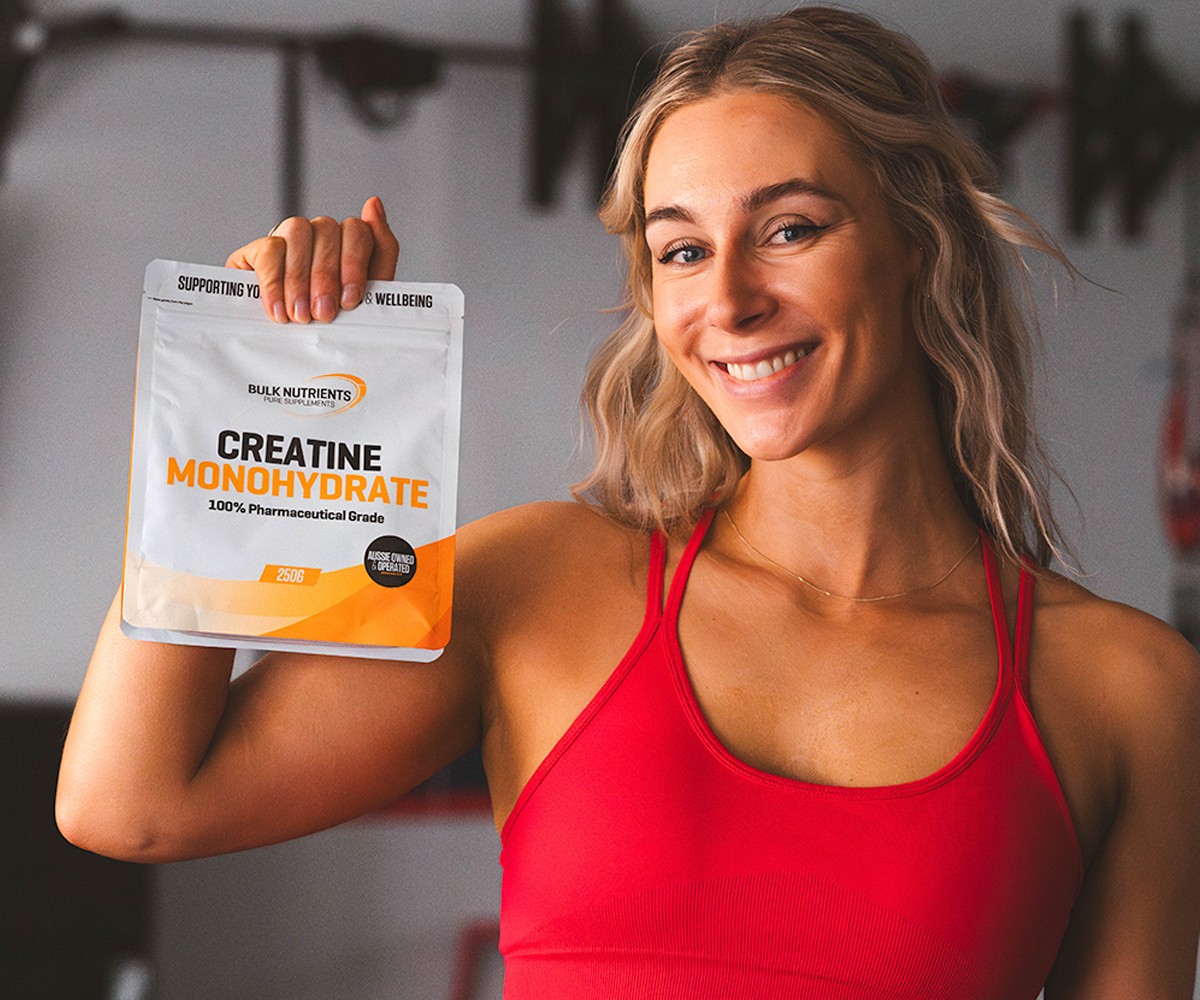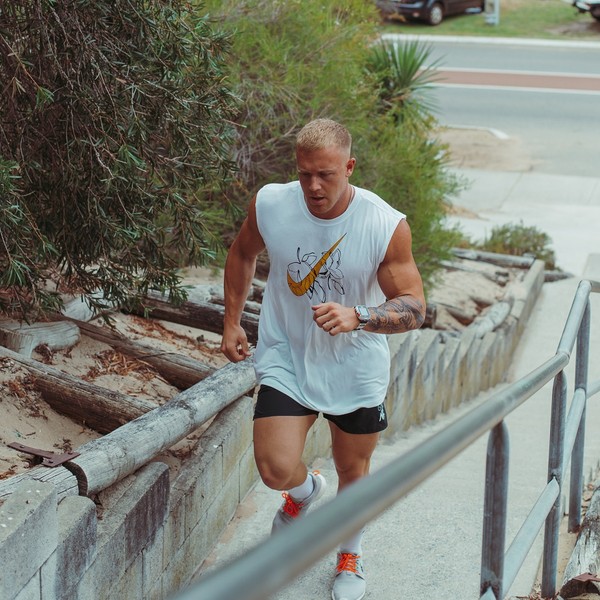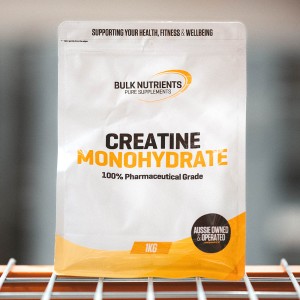Caffeine and Creatine: Take Both, but Not Together?

Background on Creatine and Caffeine
Caffeine and creatine are probably two of the most used ergogenic aids by competitive and recreational athletes nowadays. Although there is no shortage of scientific evidence supporting the efficacy of both creatine monohydrate and caffeine independently, research looking at the synergistic effects of these supplements is scarce.
On one hand, caffeine is most commonly found in the form of coffee, tea and soda, and recently has become one of the most widespread and acceptable ergogenic aids used across all sports. It has been shown in numerous studies how caffeine may positively affect performance by altering pain and effort perception, as well as fatigue reduction, improved concentration and enhanced mental alertness. It is easy to understand why athletes use such aid in hopes of improving performance and competitive success.
On the other hand, creatine is a substance that is found in our muscle cells, that allows our muscles to produce energy during high-intensity physical efforts.
Creatine Monohydrate intake enhances ATP resynthesis availability by increasing phosphocreatine storage in muscle, which has been shown to improve strength and power while delaying fatigue, especially during short duration high-intensity exercise.

Caffeine and Creatine
Given that both creatine and caffeine are considered safe to take and are two of the most commonly used ergogenic aids, the issue of whether the concurrent use of both supplements is beneficial comes into question.
In one study by Fukuda and colleagues (2014), the authors concluded that supplement blends containing both of these ergogenic aids resulted in improved anaerobic performance but did not affect aerobic power.
Similarly, a study by Spradley and colleagues (2012) evaluated the effects of a pre workout supplement containing caffeine, creatine, B-vitamins, amino acids, and beta alanine, on muscular endurance, aerobic capacity, and choice reaction time. This study showed that ingesting the supplement prior to exercise improved muscular endurance, increased perceived energy and reduced subjective fatigue, as well as improved agility choice reaction performance.
That said, there are numerous studies suggesting how caffeine blunts the ergogenic effects of creatine supplementation, which may be a problem for proprietary blends from certain brands that use both supplements in their formulations.
A double-blind study conducted by Vanderberghe and colleagues (1996) aimed to compare the effects of oral creatine supplementation alone, versus caffeine plus creatine supplementation on muscle phosphocreatine levels and performance in healthy adults.
Exercises consisted of three unilateral maximal voluntary contractions. The group consuming creatine alone showed an increase in torque production while the groups taking caffeine as well as creatine did not.
This study concluded that creatine supplementation did increase phosphocreatine concentration in skeletal muscle, but surprisingly caffeine was found to counteract the benefits of creatine supplementation with respect to exercise performance. In other words, caffeine seems to interfere with the physiological mechanisms associated with creatine supplementation, if taken together.

Conclusion
Data strongly supports the efficacy of creatine supplementation on performance, especially in short duration high-intensity exercise. Also, creatine supplementation has been linked with short and long-term muscle growth, and improved strength and power. In the same way, there is sufficient evidence supporting improved performance, perception of effort, fatigue reduction, and mental alertness following caffeine supplementation.
When it comes to supplements containing both ergogenic aids, available data is quite limited. However, it does appear that taking caffeine with creatine may result in a blunted effect of the creatine itself. Why is this the case? Some researchers speculate that it may be due to opposing effects on muscle relaxation times, which may cause a negative interaction on muscle contractile functioning.

Jackson Peos
Jackson Peos has completed a PhD at the University of Western Australia, and has a straightforward approach to nutrition and supplements.
He's completed his BSc in Sports Science, and Exercise & Health, and his BSc (Hons) in Exercise Physiology.
References:
- Avery Pakulak, Darren G. Candow, Julia Totosy de Zepetnek, Scott C. Forbes & Daniele Basta (2021) Effects of Creatine and Caffeine Supplementation During Resistance Training on Body Composition, Strength, Endurance, Rating of Perceived Exertion and Fatigue in Trained Young Adults, Journal of Dietary Supplements. doi: 10.1080/19390211.2021.1904085.
- Fukuda DH, Smith AE, Kendall KL, Stout JR. The possible combinatory effects of acute consumption of caffeine, creatine, and amino acids on the improvement of anaerobic running performance in humans. Nutr Res. 2010 Sep;30(9):607-14. doi: 10.1016/j.nutres.2010.09.004. PMID: 20934602.
- Goldstein, E.R., Ziegenfuss, T., Kalman, D. et al. International society of sports nutrition position stand: caffeine and performance. J Int Soc Sports Nutr 7, 5 (2010). doi: https://www.tandfonline.com/doi/full/10.1186/1550-2783-7-5.
- Lieberman HR, Tharion WJ, Shukitt-Hale B, Speckman KL, Tulley R. Effects of caffeine, sleep loss, and stress on cognitive performance and mood during U.S. Navy SEAL training. Sea-Air-Land. Psychopharmacology (Berl). 2002 Nov;164(3):250-61. doi: 10.1007/s00213-002-1217-9. Epub 2002 Sep 5. PMID: 12424548.
- Spradley, B.D., Crowley, K.R., Tai, C.Y., Kendall, K.L., Fukuda, D.H., Esposito, E.N., . . . Moon, J.R. (2012). Ingesting a pre workout supplement containing caffeine, B-vitamins, amino acids, creatine, and beta-alanine before exercise delays fatigue while improving reaction time and muscular endurance. Nutrition & Metabolism, 9, 28. PubMed doi: 10.1186/1743-7075-9-28.
- Trexler ET, Smith-Ryan AE. Creatine and Caffeine: Considerations for Concurrent Supplementation. Int J Sport NutrExercMetab. 2015 Dec;25(6):607-23. doi: 10.1123/ijsnem.2014-0193. PMID: 26219105.
- Vandenberghe K, Gillis N, Van Leemputte M, Van Hecke P, Vanstapel F, Hespel P. Caffeine counteracts the ergogenic action of muscle creatine loading. J Appl Physiol (1985). 1996 Feb;80(2):452-7. doi: 10.1152/jappl.1996.80.2.452. PMID: 8929583.
- Woolf, K., Bidwell, W. K., & Carlson, A. G. (2008). The Effect of Caffeine as an Ergogenic Aid in Anaerobic Exercise. International Journal of Sport Nutrition and Exercise Metabolism, 18(4), 412–429. doi: 10.1123/ijsnem.18.4.412.
Related Blogs

The Benefits of Coffee for Weight Loss and Health
Posted by Bulk Nutrients
Estimated reading time: 5 minutes

How to Make Your Own Pre Workout Supplement
Posted by Nick Telesca
Estimated reading time: 12 minutes

Creatine Made Easy!
Posted by Bulk Nutrients
Estimated reading time: 4 minutes













































